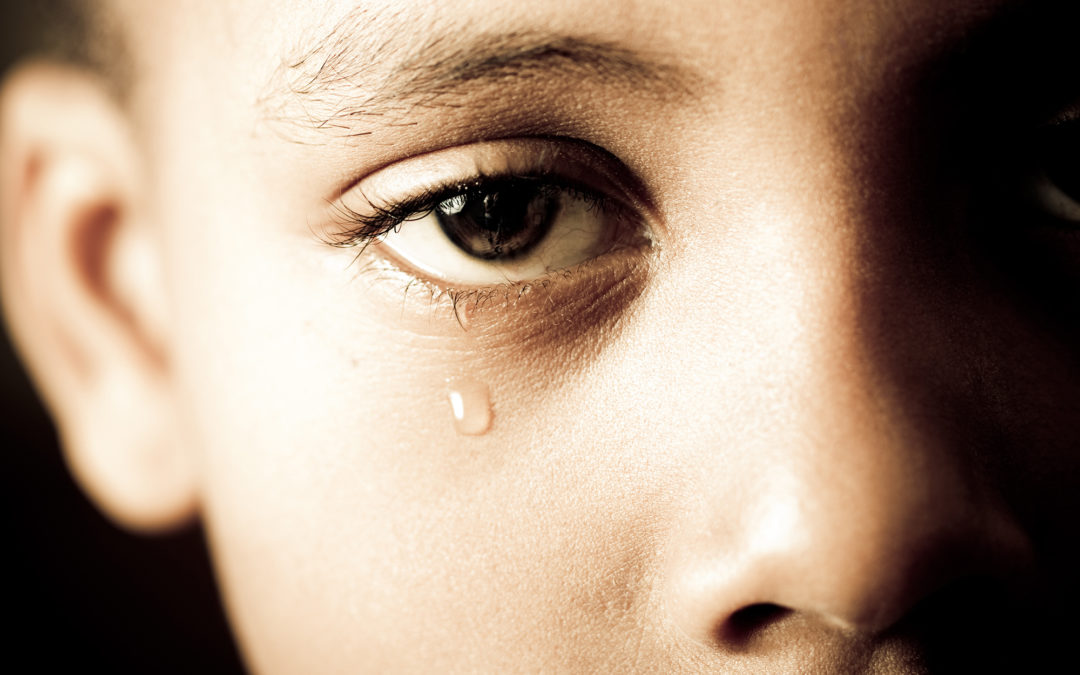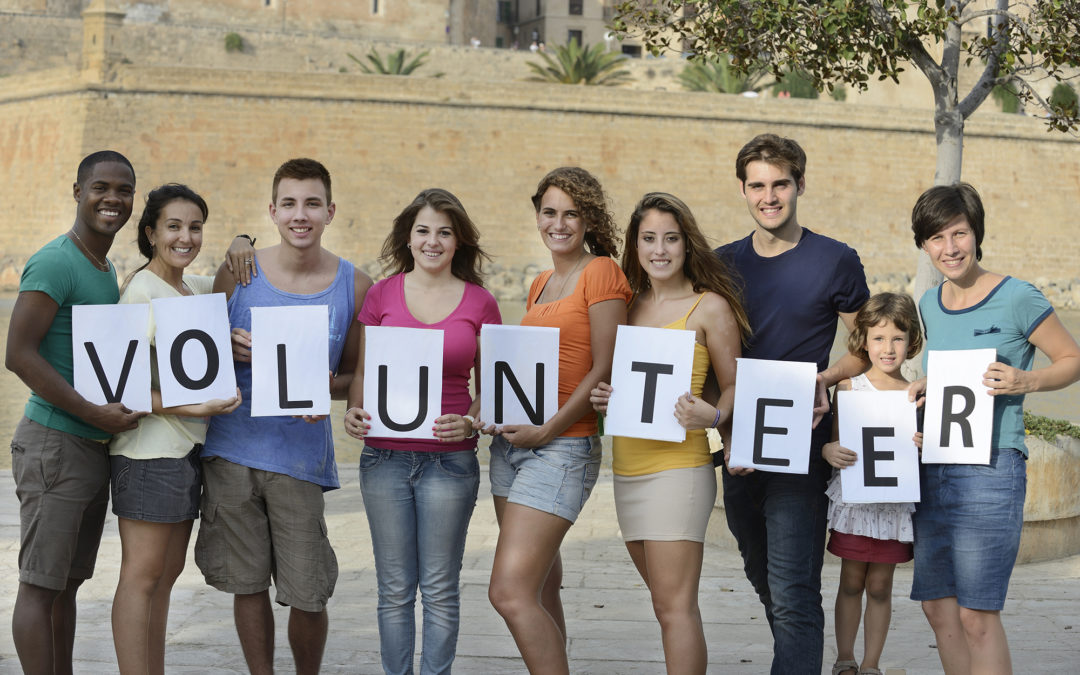
by North Shore Child & Family Guidance Center | Feb 7, 2019 | Blog
Do you think childhood trauma is a relatively rare occurrence? Here are just a few statistics to change that perception:
- More than a quarter (26%) of children in the United States will witness or experience a traumatic event before they turn four.
- 60% of adults report experiencing abuse or other difficult family circumstances during
childhood.
- In one year, 39% of children between the ages of 12 and 17 reported witnessing violence; 17% reported being a victim of physical assault; and 8% reported being the victim of sexual assault.
- More than 60% of youth age 17 and younger have been exposed to crime, violence and abuse either directly or indirectly.
According to the National Institute of Mental Health, childhood trauma is defined as “the experience of an event by a child that is emotionally painful or distressful, which often results in lasting mental and physical effects.”
Jennifer Pearlman, LMHC, who works at North Shore Child & Family Guidance Center’s Intensive Support Program through Nassau B.O.C.E.S, explains some of the common causes of trauma in children. “Sexual, physical or emotional abuse—especially when it is repeated and/or ongoing—can cause serious mental health challenges both during childhood and as the child matures into adulthood,” she says. “Problems can also develop when a child experiences chronic illnesses, loss of a loved one, bullying, serious accidents and poverty.”
Trauma can also occur when a child is witness to violence or even regular, intense verbal fighting by their parents or caregivers.
“A child who has been traumatized may be living as if they are in a constant state of danger,” says Pearlman. “Their bodies and minds are always on high alert, which means they often experience the flight, fright or freeze response more commonly associated with soldiers who have been diagnosed with PTSD [Post Traumatic Stress Disorder]. They never feel safe.”
There are many symptoms associated with trauma in children, including anxiety, anger, difficulty sleeping, poor self-image, acting out, feelings of guilt, school refusal and obsessive or compulsive behaviors. Sometimes, trauma in early years can lead to learning disabilities and, in some cases, to violent behaviors—especially when the child was the victim of abuse.
“If a child is chronically abused, it’s all they know of the world,” says Pearlman. “They may have difficulty expressing emotions, and their behavior can be unpredictable, volatile or extreme.”
The good news is that, with proper treatment, children and teens can heal from trauma and live healthy, happy lives. That treatment might include individual, group and/or family therapy; cognitive behavioral therapy; relaxation and mindfulness techniques; neurofeedback; and other methods.
“Children who’ve experienced trauma are not bad or broken or flawed,” says Pearlman. “There are many different therapeutic approaches that, by themselves or in combination, can make a huge difference.”
If your child is experiencing the effects of trauma, we can help. Contact North Shore Child & Family Guidance Center at (516) 626-1971, or email info@northshorechildguidance.org. If you are seeking an academic environment for your child or teen that offers extensive therapeutic services, ask about our Intensive Support Program, which offers intensive mental health services on-site at three Nassau B.O.C.E.S. schools for children, ages 5-21, and their families from all 56 Nassau County school districts.
Sources:
www.nctsn.org
www.samhsa.gov/child-trauma/understanding-child-trauma
www.tfcbt.org

by North Shore Child & Family Guidance Center | Jan 29, 2019 | Blog
Most parents have experienced a day here or there where their child or teen says they’re not going to go to school. They might complain of not feeling well or express anxiety over a test or be upset at a fight they had with a friend.
When those types of events are relatively rare, they are nothing for a parent to worry about. But when refusing to go to school becomes a habit, it’s important to take action to figure out what is causing this detrimental behavior.
“It’s understandable that parents get very frustrated when their child won’t go to school,” says Elissa Smilowitz, LCSW and Coordinator of Triage and Emergency Services at North Shore Child & Family Guidance Center. “Not only are the parents concerned for their child’s future, but they also often have to deal with tantrums, meltdowns or, in the worst cases, even physical blows.”
It’s very important to include the school when trying to find out why your child refuses to go. “You must find out what’s happening at school to get a sense of why your child is reluctant to go,” says Smilowitz. “It’s possible they are being bullied, or have trouble with a certain teacher, or are struggling with the work and are afraid to fail. There also may be a learning disability that has not been diagnosed.”
Smilowitz points out that ongoing school refusal often indicates an underlying mental health condition such as depression or anxiety. “If the behavior is ongoing, it’s important to seek professional help since there are possible long-term effects on a child’s social, emotional and academic development.”
In addition to talking with the school and seeking therapy, here are some other steps you can take:
- Get a comprehensive diagnostic assessment (talk to your school or therapist about resources).
- Also get a medical exam to rule out any physical causes, since children often complain about headaches, stomachaches and other bodily symptoms.
- Ask your child what is going on and listen carefully without shaming or judging them.
Another option is to find out what alternatives there are to traditional schools. For example, the Guidance Center runs a program called ISP, or Intensive Support Program. ISP offers intensive mental health services on-site at three Nassau B.O.C.E.S. schools for children, ages 5-21, and their families from all 56 Nassau County school districts.
To learn more about ISP, call the Guidance Center at (516) 626-1971 and ask to speak to Regina Barros-Rivera, extension 330. To find out more about our programs and services, click here or email info@northshorechildguidance.org.
by North Shore Child & Family Guidance Center | Jan 28, 2019 | In The Media
EDITORIAL – Long Island Herald, published in 23 newspapers across Nassau County
State must do right by mental health patients
By Scott Brinton, Editor, Long Island Herald
January 24, 2019
Society has long looked down on mental health patients, according to Andrew Malekoff, executive director of the Roslyn Heights-based North Shore Child & Family Guidance Center. So it has been all too easy for insurance companies to treat them as second-class citizens, often paying substandard reimbursements to care providers and hiking copayments for treatment.
Ailments of the mind have never been on a par with physical diseases, such as cancer or heart disease, Malekoff says. Rather, society stigmatizes mental health patients. Their issues, it is commonly believed, are of their own doing, not the result of variations in the brain’s biochemistry or its neural network.
Malekoff recently met with the Heralds’ editorial board to discuss the complex insurance issues associated with mental health.
In particular, drug addicts are seen as less worthy by insurers. If users hadn’t taken drugs in the first place, they never would have wound up in treatment, so they should just deal with it, the thinking goes.
All of us feel a deep sense of sympathy for a lung cancer patient, even if that patient spent a lifetime inhaling a pack of cigarettes a day. We can comprehend, if only on a basic level, the insidious mutations in lung structure that cancer causes. We understand the terrible, painful death that any cancer patient potentially faces.
But what of people living with mental illnesses? We move away, sometimes fearful. We don’t understand how to help. We feel little or no sympathy, particularly given the mythology that some such patients are a possible danger to society.
In rare instances, individuals living with mental illness pose a physical threat. More often, they are victimized by bullies.
Mental health parity laws were supposed to make issues of the mind equal to those of the body, according to Malekoff. They haven’t, however. In New York state, Timothy’s Law, passed by the Legislature and signed into law by Gov. George Pataki in 2006, was supposed to ensure parity between treatments for mental and physical health. The law was named for a middle school student from upstate Schenectady who suffered from severe depression and a host of other mental health issues, and killed himself when he was just 12 years old. His family could no longer afford treatment after their insurance benefits had run out.
Timothy’s Law took effect in 2007, and in 2009, the State Insurance Department reported that the law had significantly increased treatment for mental health patients. Lax enforcement, however, allowed the insurance companies to slip back into their old ways, according to a study released by the North Shore Child & Family Guidance Center last January, titled “Project Access.”
2018 marked the 10th anniversary of the federal Mental Health Parity and Addiction Equity Act. It has never, however, brought true parity in New York and in states around the country, according to Malekoff.
In December, Gov. Andrew Cuomo signed the Mental Health and Substance Use Disorder Parity Report Act, which requires health insurance companies to report directly to the State Department of Financial Services and the commissioner of health on insurance payments for mental health patients. At the end of the year, Financial Services must prepare a report assessing the degree to which insurers are complying with mental health parity laws. The measure will take effect Sept. 1.
The annual report, according to Malekoff, will provide desperately needed accountability. Compiling a yearly report is one thing. Making sure that the insurance companies are actually complying not only with the reporting measure, but also with the mental healthy parity laws themselves, is another.
For starters, Financial Services will have to verify the information reported by the insurance companies to ensure its accuracy, Malekoff says. If state officials then find that the insurers are out of sync with the law, they will likely have to litigate to force compliance.
That’s never an easy proposition. Lawsuits are costly, and insurance companies understand that state officials are often reluctant to litigate because of the expense, particularly in an era of state budget constraints. So our Assembly and Senate representatives will have to provide oversight of Financial Services and the health commissioner to ensure that they do their jobs.
Otherwise, mental health patients will remain as they long have been — in the shadows, ignored and hurting.

by North Shore Child & Family Guidance Center | Jan 24, 2019 | Blog
With all the bad news and divisiveness permeating our culture today, it can be a struggle to see the good in the world.
The good news: We can teach our kids—and even ourselves—ways that they can contribute to making the planet a better place.
There are many opportunities to lend a hand by volunteering. Helping others isn’t a purely selfless act—though it does certainly make a big difference in the lives of those who need help. But the reality is, volunteering has a positive effect on everyone, both the giver and the receiver. It’s known to play a big role in creating a happier, healthier life.
Here at North Shore Child & Family Guidance Center, we have several wonderful volunteers who help out mainly in two of our programs: The Children’s Center at Nassau County Family Court, and our Learning to Learn Center’s tutoring program.
Are you interested in being a Guidance Center volunteer?
The Guidance Center is always looking for hard-working people who have patience and a love for children. All volunteers (you must be 18 or older) have their own unique schedules and flexibility. To find out more about our tutoring program, contact Gerri Lima at 516-997-2926, ext. 239, or email GLima@northshorechildguidance.org. If you are interested in volunteering at the Children’s Center at Nassau County Family Court, contact Dr. Nellie Taylor-Walthrust at (516) 997-2926, ext. 229, or email NTaylorWalthrust@northshorechildguidance.org. If your company is interested in creating a volunteer initiative with the Guidance Center, please contact Lauren McGowan at (516) 626-1971, ext. 320 or email LMcGowan@northshorechildguidance.org
The Children’s Center provides care and early learning to almost 2,000 children annually, ages 6 weeks – 12 years, while their parents or guardians are conducting court business. Volunteers read and play with the children, and that interaction is sometimes the most rewarding time the children (and the volunteers!) have all week!
With our Learning to Learn Center program, volunteers offer to tutor students from the youngest of ages up through high school. One of our tutors, Lauren Greenberg, says that she knew she wanted to get involved in helping kids. Luckily for us, she chose to volunteer for our program.
“I’ve been tutored before and was grateful for that,” says Greenberg, now a freshman at Wesleyan University. “Plus, I love the kids! Tutoring is the most fun part of my week.”
(Lauren’s story will be featured in our February issue of our Guidelines newsletter. To receive the newsletter, email development@northshorechildguidance.org).
Following are some of the reasons volunteering is beneficial:
- It reduces the risk of depression by helping you make new friends and build a support network of like-minded people.
- It boosts your self-esteem and helps you develop better communication skills.
- Volunteering keeps you active and engaged with the world, and depending on what kind of volunteering you do, it could even help you stay more physically fit, including lowering your blood pressure!
- It exposes you to new experiences, giving you insight into the world around you and all the opportunities that are out there just waiting for your energy and dedication.
- It helps reduce stress and loneliness by giving you a feeling of purpose and connection.
- The symptoms of mental health issues such as Post-Traumatic Stress Disorder, Obsessive Compulsive Disorder, anxiety and other conditions have been shown to decrease when people volunteer.
- Volunteering gives you perspective, helping you realize that there are others in the world struggling with issues, just like you.
The bottom line: Volunteering is fun!
Sources:
https://www.health.harvard.edu/blog/volunteering-may-be-good-for-body-and-mind-201306266428
https://www.thebalance.com/unexpected-benefits-of-volunteering-4132453
https://www.theguardian.com/society/2004/sep/28/volunteering.uknews

by North Shore Child & Family Guidance Center | Jan 23, 2019 | In The Media
By Andrew Malekoff
One hazy mid-August afternoon many years ago, I was cooling off in the ocean off my hometown, Long Beach. Another swimmer grabbed my attention by pointing toward the jetty, the rock formation that helps to protect the shoreline from erosion. When I turned I spotted three children drifting toward the rocks.
I swam to them. When I arrived, there were three little girls with their arms wrapped around one another. One looked to be about 9-years-old. The others, who were crying and holding on to the older girl, appeared to be 6 or 7. The older girl was barely in control of her emotions.
I wrapped my arms around the three girls and told them to hang on. Swimming to shore with them as a group was not an option. Neither was leaving them behind. All I could do was hold on, try to calm them, steer them away from the jetty and wait.
Finally, the lifeguards arrived and took over. I swam to shore and went back to my beach chair. I never saw the three little girls again. Nevertheless, I haven’t forgotten them. Twenty years, ninety-seconds and two words – “hang on,” and I still think about them quite often. For those few moments we were so close that I could see their freckles.
Let’s consider another scenario. Try to picture me swimming to the three girls. Now, imagine if, instead of my telling them to hang on, if I treaded water just a few feet from them and asked them if they had Medicaid insurance. Imagine if they answered, “No mister” and if I then said, “Sorry, girls,” turned my back on them and then swam to shore without them.
I thought about this because aside from my enjoying the beach in my hometown, I have been working in the children’s mental health field on Long Island for more than 40 years as a psychotherapist, alcoholism and substance use counselor, agency administrator and advocate; all those years at North Shore Child and Family Guidance Center, a 65-year-old children’s mental health agency in Roslyn Heights.
It was my role as advocate that was evoked by my encounter in the Atlantic Ocean. During the last 10 years I have observed, first-hand, New York State making a dramatic departure from its statutory responsibility to make sure that our most vulnerable citizens – our children – get community-based mental health care, regardless of their family’s economic status.
I’ve also learned that the health insurance industry is no better. Most private health insurers pay substandard rates that many mental health care providers can no longer afford to accept. Even worse, profit-driven insurance denials and delays for care have actually killed children.
For example, in 2001 Timothy O’Clair, a 12-year-old from upstate New York, died by suicide after his parents were unable to obtain timely mental health treatment for him due to health-insurance coverage limits.
Access delayed is access denied.
I had the privilege of meeting Tom O’Clair, Timothy’s dad, just this past October in Albany at event – Every Fight Needs a Voice – sponsored by the National Alliance on Mental Illness (NAMI-NYS) in which Tom and I were honored for our advocacy efforts to ensure access to mental health and addiction care for New Yorkers.
Although Timmy’s death was the impetus for the passage in 2006 of Timothy’s Law, which extends insurance coverage for mental illness, the health insurance industry has a very long way to go. And, this is despite the fact that two years after Timothy’s Law passed the New York State legislature, the federal Mental Health Parity and Addiction Equity Act of 2008 became federal law.
I invite you to jump into my Atlantic Ocean memory with me, because it is a story that is about more than me and three little girls. It is about what that experience induced in me. It is about the millions of children than need to be guided safely to shore every year and offered the chance to see a brighter day.
Andrew Malekoff is the executive director of North Shore Child & Family Guidance Center.




